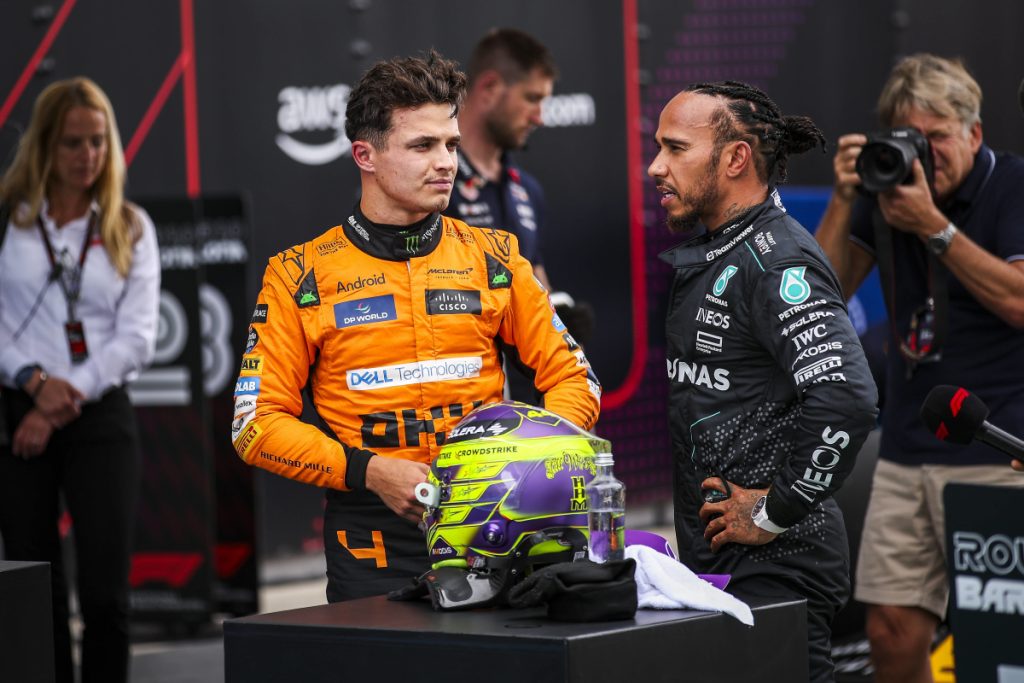Just in:McLaren F1 driver exit confirmed after…read more

McLaren F1 driver exit confirmed after…read more
In a recent revelation, a Mercedes insider, Matt Whyman, has shed light on Lewis Hamilton’s decision to leave McLaren back in 2012. Hamilton’s departure from the team, which had been his home since his rookie season in Formula 1, marked a pivotal moment in his career. The British driver, who had won his first World Championship with McLaren in 2008, shocked many when he made the unexpected move to Mercedes at the end of the 2012 season. This decision would ultimately shape the rest of his career, as Hamilton went on to dominate the sport with Mercedes, securing seven World Championships and becoming one of the greatest drivers in F1 history.
Whyman, who authored Inside Mercedes F1: Life in the Fast Lane after spending 18 months with the Brackley-based team, revealed new details about Hamilton’s exit from McLaren. According to Whyman, Hamilton did not confront the situation head-on, instead choosing to notify McLaren of his departure via email, while he was overseas at the time. This choice to avoid a face-to-face conversation left Hamilton feeling guilty, as it wasn’t in his nature to avoid difficult situations. The email sent to McLaren, particularly to team principal Ron Dennis, who was known for his tough and demanding nature, marked the end of a key chapter in Hamilton’s career.
At the time of Hamilton’s decision to leave, McLaren was still under the leadership of Ron Dennis, who had been the team principal for many years, although he had stepped down from that role. Dennis, a figure with a reputation for being a stern and uncompromising leader, was instrumental in Hamilton’s early years at McLaren. Their relationship had been pivotal in Hamilton’s growth as a driver, but after a series of frustrating seasons, especially in 2011 when he finished the year without a championship, Hamilton began to question his future with the team.
In 2012, McLaren had given Hamilton a competitive car, but they struggled with consistency, and the team’s inability to deliver a reliable championship-winning car became apparent. Tensions reportedly began to rise, particularly with Hamilton’s frustration about McLaren’s failure to capitalize on the potential of their car. After considering various options, including staying at McLaren or moving to another team, Hamilton made the shocking decision to leave McLaren and join Mercedes for the 2013 season. This marked the beginning of a new era for both Hamilton and Mercedes, a partnership that would go on to redefine Formula 1 in the following decade.
The decision to send an email rather than discuss it face-to-face with Dennis was something Hamilton reportedly felt uneasy about. Whyman explained that it was a common response to difficult situations, where people often avoid direct confrontation by opting for written communication instead. “When you’ve got a difficult thing to do, you think, ‘I’ll send an email or just leave it there, please, please let it go to voicemail,’” Whyman said, reflecting on how people often deal with difficult decisions. For Hamilton, this email marked the end of a chapter with McLaren, a team where he had achieved great success but felt it was time to move on.
Hamilton’s move to Mercedes was a game-changer for his career. The switch allowed him to forge a new legacy with a team that, at the time, was far from the powerhouse it would later become. It also marked a shift in the competitive landscape of Formula 1. While McLaren struggled with consistency in the years that followed, Hamilton found unparalleled success at Mercedes, winning six of his seven World Championships with the team. He also clinched 84 Grand Prix victories during his 12-year tenure with Mercedes, solidifying his place as one of the sport’s most successful and influential drivers.
Now, as Hamilton prepares for the next chapter of his career with Ferrari starting in 2025, he remains driven by the desire to secure an eighth World Championship title. His move to Ferrari is seen by many as a final attempt to achieve this goal before his retirement, adding yet another exciting chapter to his already legendary career. As Hamilton continues to adapt to the ever-changing landscape of Formula 1, his decision to leave McLaren in 2012—via email, no less—remains one of the sport’s most significant and unexpected moments.





